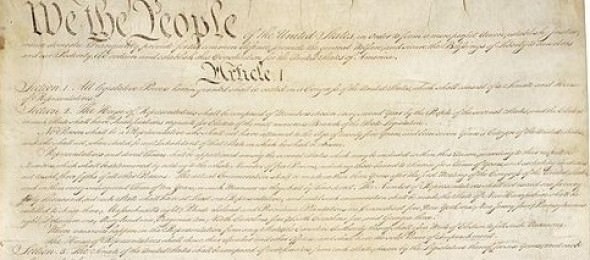The following is Part Two of a three-part overview of Professor Thomas Stipanowich’s recently published article entitled “In Quest of the Arbitration Trifecta, or Closed Door Litigation?: The Delaware Arbitration Program,” Journal of Business, Entrepreneurship and the Law, Forthcoming; Pepperdine University Legal Studies Research Paper No. 2013/10. Part One provided a brief overview of the Delaware Arbitration Program. Part Two will discuss an ongoing constitutional challenge that is presently before the Third Circuit Court of Appeals.
Part Two: A Constitutional Challenge to the Delaware Arbitration Program
In response to the closed-door nature of Delaware Arbitration Program proceedings, a non-profit group named the Delaware Coalition for Open Government filed a constitutional challenge to the Program in 2010. According to the group, the arbitration procedure created by the Delaware statute essentially constituted a non-jury trial and illegally deprived the public of access to the proceedings. A number of media outlets agreed with the Coalition and filed a joint amicus curiae brief in support of the group’s position. According to Professor Stipanowich, the brief stated open proceedings were necessary in order to alert the public to safety issues and keep investors well-informed. Additionally, the group argued that businesses who were concerned with maintaining confidentiality had the option to select a different forum rather than submitting their disputes to the Program.
The article states,
By way of example, the brief cited Zurich American Insurance Co. v. Rite Aid Corp., in which a court considering competing motions to vacate or to confirm an arbitration award declined to maintain the entire record of arbitration proceedings under seal in light of, among other things, “the common law presumption of public access” to court proceedings.
In response, the five judges of the Delaware Court of Chancery who were named as defendants in the case argued for judgment on the pleadings. In a joint brief, the judges stated the Coalition could not “prove that the type of proceeding involved has historically been accessible to the press and public, and that ‘public access plays a significant positive role in the functioning of the proceeding, including consideration of whether public access impairs the public good.’” In addition, the brief cited “the longstanding recognition of the inherent privacy of arbitration proceedings,” and reminded the court that the ABA Model Code of Judicial Conduct acknowledges a judge may properly serve as an arbitrator when authorized by statute. According to the judges, the Delaware Arbitration Program was similar,
to the employment of court-annexed arbitration in federal district court ADR programs and provisions of the Alternative Dispute Resolution Act of 1998 that list voluntary arbitration (subject to a right of trial de novo) among ADR options available to Federal courts, and related provisions for confidentiality of ADR proceedings.
The judges also argued that providing the public with access to arbitral proceedings initiated pursuant to the program would prompt businesses to choose a different forum and make the state unable “to compete in the international market for arbitration forums.” Finally, the defendants distinguished the arbitration procedure under the Program from litigation.
Federal District Court Judge Mary McLaughlin found “that the proceedings before the Delaware Court of Chancery were in essence civil trials, and therefore subject to the requirements of the First Amendment respecting right of access by members of the public and press.” In her opinion, Judge McLaughlin outlined many of the differences between arbitral and judicial proceedings. According to Professor Stipanowich,
She found it significant that the defendants were unable to point to specific examples of judges serving as arbitrators in the ABA Code of Judicial Conduct. She also observed that sitting judges do not serve as arbitrators in court-connected proceedings and, indeed, are specifically prohibited from doing so by case precedents in some jurisdictions. She then enumerated certain elements of proceedings under the Delaware Arbitration Program that were sufficiently like trial to bring into play policies of open access, including (1) selection of judges as arbitrators by the Chancellor; (2) a sitting judge, paid by the state, presiding over a proceeding with the assistance of state personnel in public facilities; (3) the wielding of arbitral as well as judicial authority by the judge; and (4) the rendition of a final enforceable order by the judge.
Following Judge McLaughlin’s holding, the defendants filed an appeal with the Third Circuit on October 11, 2012. The final installment in this series will summarize Professor Stipanowich’s thoughts on the Delaware Arbitration Program and the rationale used by District Court Judge McLaughlin. Please stay tuned!











